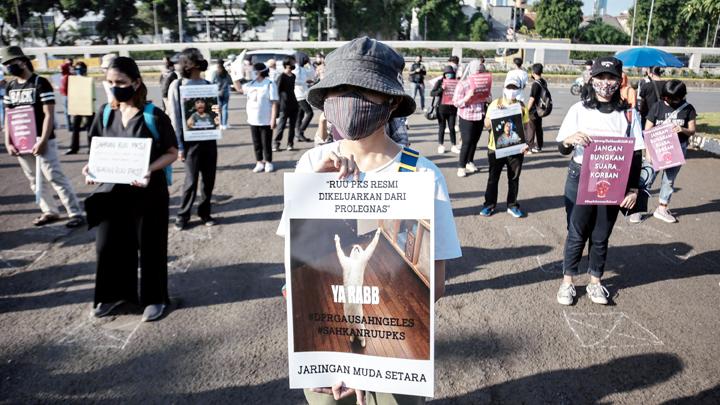Passing the Hot Potato
Tuesday, July 14, 2020
arsip tempo : 174640661122.

THERE was a flurry of activity in the Maju Perempuan Indonesia (MPI—Onward Indonesian Women ) WhatsApp group on Tuesday, June 30. The members of the group, which consist of nearly all of the female members of the House of Representatives (DPR) and some women’s rights activists, were discussing a question put forward by Dian Kartikasari. “I asked why the DPR dropped the (deliberations on the) Sexual Violence Eradication Bill (RUU
...
Subscribe to continue reading.
We craft news with stories.
 For the benefits of subscribing to Digital Tempo, See More
For the benefits of subscribing to Digital Tempo, See More








